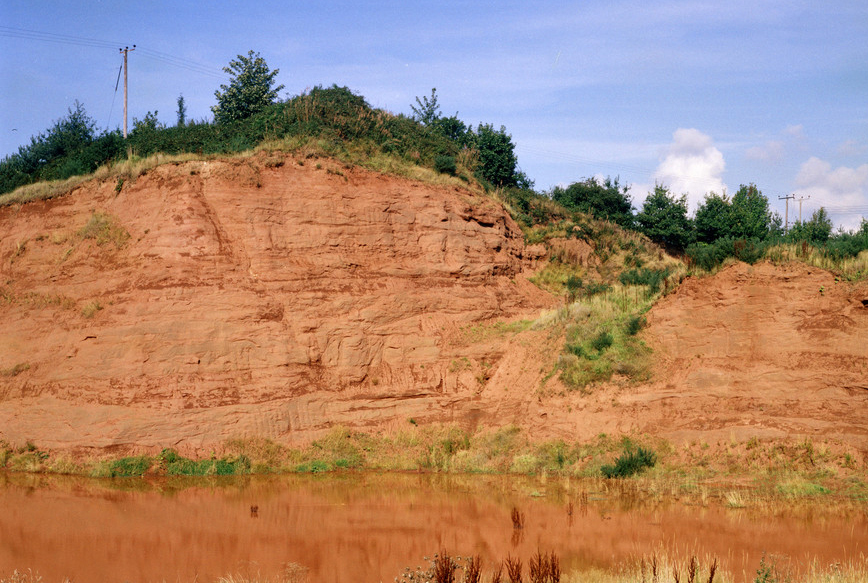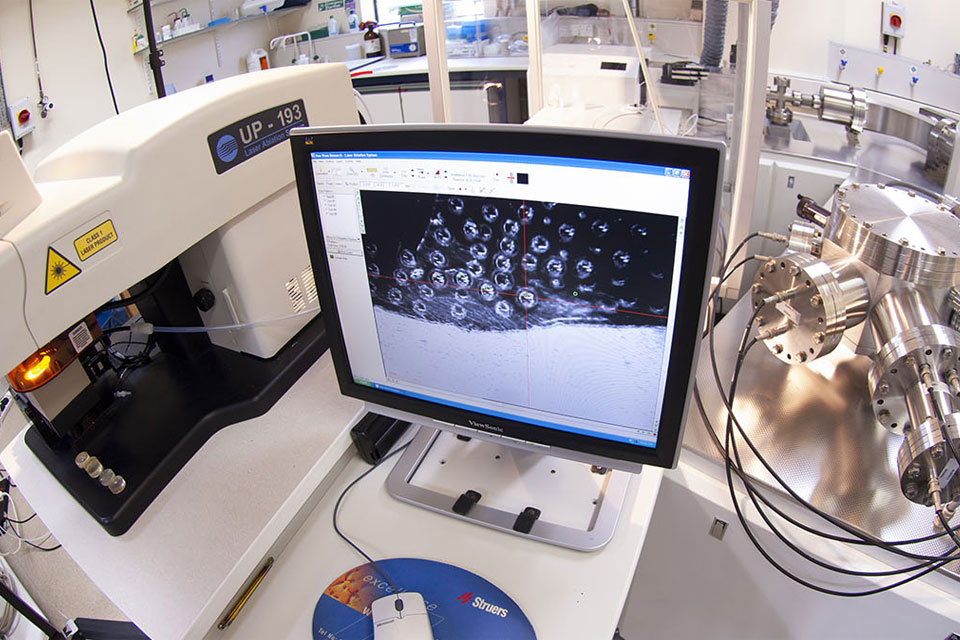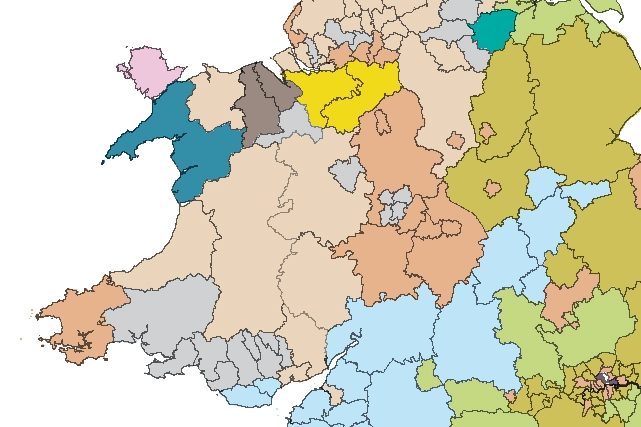Next stage of funding awarded for project on hydrogen storage potential in the East Midlands
BGS will conduct essential studies on hydrogen behaviour in the subsurface to predict, measure and monitor underground hydrogen storage.
17/10/2024 By BGS Press
Following a successful bid, the East Midlands Storage (EMStor) consortium has been awarded strategic innovation funding from Ofgem, building on work delivered during the earlier discovery phase. In this alpha phase, the consortium includes the original partners Cadent (lead partner), BGS, Edinburgh University and Star Energy Group, now joined by Centrica Storage, Uniper and National Gas.
The discovery phase assessed a range of different geological storage options in the East Midlands. Storage in repurposed onshore hydrocarbon fields was identified as the leading hydrogen storage option. The discovery phase also showed that hydrogen storage is a vital component to any future hydrogen system in the East Midlands to ensure energy security, resilience and affordability. The development of hydrogen storage in repurposed hydrocarbon fields must be done in tandem with the development of hydrogen production, such as at Uniper’s Ratcliffe-on-Soar power station and Cadent’s hydrogen network.
The EMStor alpha phase will further develop knowledge by advancing understanding of:
- decisions on next steps and future phasing
- public perception of hydrogen storage
- technical aspects of underground hydrogen storage, such as geological feasibility and well-integrity assessment
- approaches to regulatory, permitting and planning for potential demonstration
A dissemination event will be held in spring 2025 to detail findings and outline next steps.
We’re delighted to have secured this funding so that we can continue to break new ground in onshore hydrogen storage. The ultimate aim is to increase the technology readiness level of storage of hydrogen in disused hydrocarbon fields by demonstrating that it works, by 2030. Local geological stores of hydrogen in the East Midlands will allow a much more rapid deployment of our hydrogen pipeline network and mean that more customers can switch away from natural gas and decarbonise more quickly.
Sally Brewis, head of regional development, Cadent.
BGS will conduct essential tests on how the hydrogen may behave in the subsurface, including how hydrogen interacts with the environment and reservoir rock, so that we can more accurately predict, measure and monitor underground hydrogen storage.
BGS is excited to be working with our EMStor partners on developing underground hydrogen storage in the East Midlands. Underground hydrogen storage will help provide energy security and ensure the supply of renewable and low-carbon energy to local businesses throughout the energy transition.
Through Project EMStor, we hope that to raise the technology readiness level and prove the scientific case for underground hydrogen storage in porous rocks.
Edward Hough, research lead in underground energy storage, BGS.
Relative topics
Related news

Call for new members and Chair to join the NERC facilities steering committees
25/02/2026
New members are needed to join the committees over the next four years.

Your views wanted – developing a ‘Geothermal energy subsurface data portfolio’
24/02/2026
BGS is aiming to support the growth of the sector by providing the best-available, location-specific geothermal and ground source heat information as an accessible product or service.

Map of BGS BritPits showing the distribution of worked mineral commodities across the country
18/02/2026
BGS’s data scientists have generated a summary map of the most commonly extracted mineral commodities by local authority area, demonstrating the diverse nature of British mineral resources.

Funding awarded to map the stocks and flows of technology metals in everyday electronic devices
12/02/2026
A new BGS project has been awarded Circular Electricals funding from Material Focus to investigate the use of technology metals in everyday electrical items.

New UK/Chile partnership prioritises sustainable practices around critical raw materials
09/02/2026
BGS and Chile’s Servicio Nacional de Geología y Minería have signed a bilateral scientific partnership to support research into critical raw materials and sustainable practices.

Extensive freshened water confirmed beneath the ocean floor off the coast of New England for the first time
09/02/2026
BGS is part of the international team that has discovered the first detailed evidence of long-suspected, hidden, freshwater aquifers.

Funding secured to help mitigate ground risk in UK construction sector
05/02/2026
The BGS Common Ground project has been awarded new funding to help unlock the value of ground investigation data.

Can sandstones under the North Sea unlock the UK’s carbon storage potential?
02/02/2026
For the UK to reach its ambitious target of storing 170 million tonnes of carbon dioxide per year by 2050, it will need to look beyond the current well-studied geographical areas.

Quaternary UK offshore data digitised for the first time
21/01/2026
The offshore wind industry will be boosted by the digitisation of a dataset showing the Quaternary geology at the seabed and the UK’s shallow subsurface.

Suite of ten new soil reference materials released
02/01/2026
BGS has a longstanding track record of producing high-quality reference materials and has released ten new soil reference materials.

Perth and Kinross tops the UK’s earthquake activity charts for 2025
29/12/2025
Seismologists at BGS have published data on the number of seismic events over the past 12 months with over 300 earthquakes recorded.

BGS awarded funding to support Malaysia’s climate resilience plan
17/12/2025
The project, funded by the Foreign, Commonwealth & Development Office, will focus on minimising economic and social impacts from rainfall-induced landslides.



